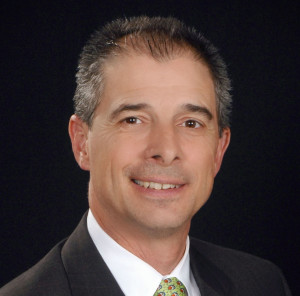It’s hard to know how to leave when you shouldn’t have been there in the first place.
The Afghanistan debacle is all the news these days, and for good reason. The humanitarian crisis created by the sudden departure of American forces is a grave tragedy. We are responsible. It is heartbreaking to hear the stories, to know that lives have been lost, that mothers and fathers, daughters and sons will continue to die because our withdrawal of troops allowed the resurgence of renegades, driven by a religious ideology that is so backward and heartless that it wounds and kills without conscience.
 And it’s a political fiasco that makes you wonder, yet again, what they were thinking. Sadly, these fiascos just keep happening, Left and Right, across the political spectrum. Fiascos on a local, state and national level just keep happening. In this latest case, the human predicament is being played out on an international stage, so badly that it might be comical if the consequences were not fatal.
And it’s a political fiasco that makes you wonder, yet again, what they were thinking. Sadly, these fiascos just keep happening, Left and Right, across the political spectrum. Fiascos on a local, state and national level just keep happening. In this latest case, the human predicament is being played out on an international stage, so badly that it might be comical if the consequences were not fatal.
What were they thinking? This is what they planned? Was someone actually in charge of this? They could not have seen this coming? I know that Monday morning quarterbacking is always too easy, but it does seem obvious, doesn’t it? (Yet again.)
President Biden recently insisted, “The Buck stops here.” And it will. The cost to Biden’s political future is yet to be determined — and could be fatal — but in an Aug. 16 news conference the president also spoke an undeniable truth: “After 20 years, I’ve learned the hard way that there was never a good time to withdraw U.S. forces.”
The Russians spent 20 years in Afghanistan, and they were belittled and criticized for expending so much for so little. Determined to learn nothing from that experience, the United States marched into our own two decades of too much for too little.
How was this ever supposed to end?
When this war had been raging only a couple months, I commented during a Sunday sermon that we never should have gone into Afghanistan to begin with. Instead, I said, we should have relied on diplomacy, insisted on a more creative response.
At the door, a supporter, who has also always been a critic, chastised me: “We’ve tried diplomacy. Diplomacy doesn’t work.” But I also had noted in the sermon that we already had spent $9 billion on that war, so I responded: “Yes. We have tried diplomacy, but we never have tried $9 billion diplomacy!”
“Yes. We have tried diplomacy, but we never have tried $9 billion diplomacy!”
Jesus said in Matthew 5 that when your enemy strikes you on the cheek, you “turn the other cheek.” He was not suggesting a wimpy “passyfism” (as some have mocked “pacifism”). Jesus was not suggesting we let our enemies have their way, just walk all over us. No, Jesus was admonishing us to creativity, to turn the tables on our enemies, to employ something new, a surprising, creative response, but a non-violent one.
My old seminary prof, the late Glenn Stassen, called the actions, which Jesus admonished in the Sermon on the Mount, “transforming initiatives.” Stassen believed the vision of Jesus could transform individual relationships, and he believed the theology of Jesus also could transform international politics. I do, too.
I firmly believe that one day the human race will have a leader with enough confidence and savvy, with enough insight and courage to turn the tables on an enemy and find that transforming initiative. When that day comes, rather than striking back with the oldest, most failed response to violence (with more violence), that transforming initiative will change the game of human relations, and international politics, forever. Forever.
“One day, instead of using the nation’s unimaginable resources trying to figure out how to get out of war, we’re going to use them to create the solutions that keep us from waging war in the first place.”
I do not know what that transforming initiative would have looked like, specifically, how it would have turned the tables on a nation, complicit in 9/11, how it might have prevented us from going into a 20-year war in Afghanistan. But what I believe is that someone with access to the nearly unlimited resources and power of the United States of America should be able to find it.
Instead, 20 years ago, once again, we chose war.
And when you choose war as your “solution” — especially a war that cannot be won — it is difficult to know how to bring that war to an end.
One day, instead of using the nation’s unimaginable resources trying to figure out how to get out of war, we’re going to use them to create the solutions that keep us from waging war in the first place.
We should not have been there. We could at least pray this would be the last time.
Russ Dean serves as co-pastor of Park Road Baptist Church in Charlotte, N.C. He holds degrees from Furman University, Southern Baptist Theological Seminary and Beeson Divinity School. He and his wife, Amy, have been co-pastors of Park Road since 2000. They are parents of two sons. Russ is active in social justice ministries and interfaith dialogue. He is author of the new book Finding A New Way.
Related articles:
Love ’em and leave ’em: America walks out on Afghanistan | Opinion by Erich Bridges
On Afghanistan, there were no innocent choices available | Opinion by David Gushee
‘Humanitarian catastrophe’ unfolding in Afghanistan
Uganda opens its doors to welcome 2,000 Afghan refugees
Afghanistan: A tragic example of an unjust war | Analysis by Chris Conley
Afghanistan and America: Bloodlust and the failure of prophetic imagination | Opinion by Wendell Griffen


